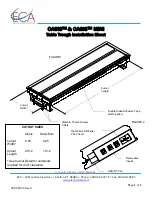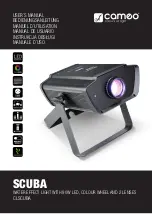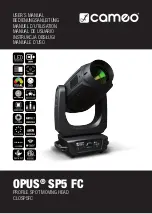
5
Misusing the battery may cause the battery to get hot, rupture, or ignite, and cause serious injury. Make sure to follow
the safety informations listed below:
•
Do not put the battery in fire, attempt to heat it, or use it in a high temperature environment.
• Do not install the battery backwards with reversed polarity.
• Do not connect the positive terminal to the negative terminal of the battery with any metal object (such as a wire).
• Do not carry or store the battery together with necklaces, hairpins, or other metal objects.
• Do not pierce the battery with nails, strike the battery with a hammer, step on the battery, or otherwise subject it to strong
impacts or shocks.
• Do not expose the battery to water or salt water, or allow the battery to get wet.
• Do not disassemble or modify the battery. The battery contains safety and protection devices, which, if damaged, may
cause the battery to generate heat, rupture or ignite.
•
Do not place the battery on or near fires, stoves, or other high-temperature locations. Do not place the battery in direct
sunlight. Doing so may cause the battery to generate heat, rupture, or ignite. Using the battery in this manner may also
result in a loss of performance and a shortened life expectancy.
• Do not place the battery in microwave ovens, high-pressure containers, or on induction cookware.
• Immediately discontinue use of the battery if, while using, charging, or storing, the battery emits an unusual smell, feels hot,
changes color or shape, or appears abnormal in any other way.
•
Only charge the battery mounted in the fixture with the built-in charger. Do not use a third party charger.
• Do not charge unattended.
• Only charge the battery if the surrounding temperature is in the range of +7 to +35°C (45° to 95°F). Charging the battery
outside of this temperature range may cause the battery to heat up or break. It may also harm the performance of the bat-
tery or reduce the battery’s life expectancy.
•
Do not replace the battery in the fixture with other types of rechargeable batteries.
•
Do not replace the battery in the fixture with non-rechargeable batteries, such as dry-cell batteries etc.
• When the battery is worn out, insulate the terminals with adhesive tape or similar materials before disposal.
• Follow applicable laws and regulations for transport, shipping, and disposal of batteries. For details on recycling lithium,
lithium-phosphate, and lithium-ion batteries, please contact a government recycling agency or your waste-disposal service.
This warning applies to all SGM battery-driven products, due to the inside LI-ION battery.
WARNING! LI-ION Battery.






































